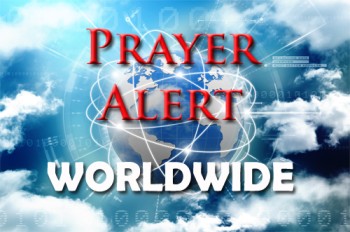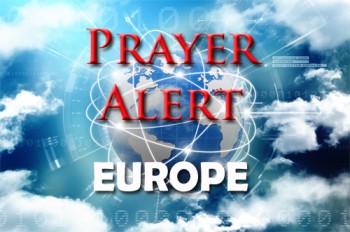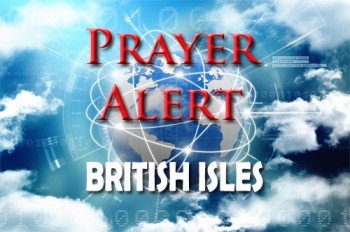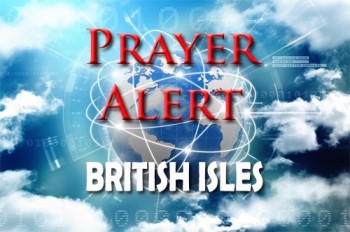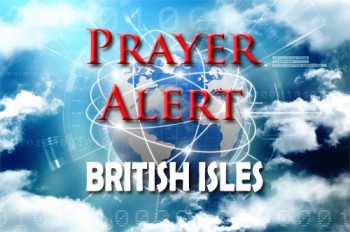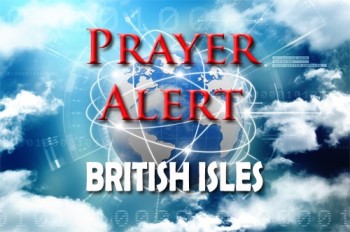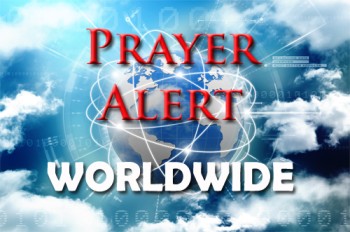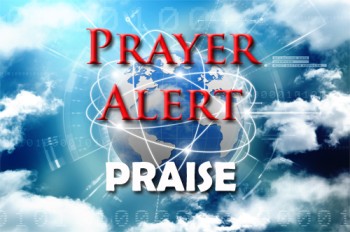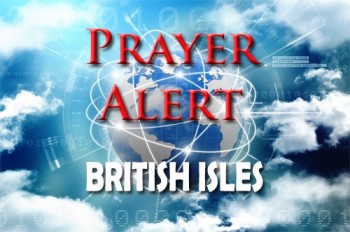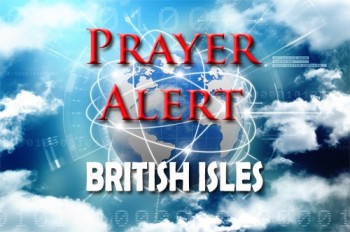Displaying items by tag: Law
USA: healthcare clinic challenging pro-abortion law
A Catholic healthcare clinic is challenging a Colorado law that forbids giving women a natural hormone to reverse the effects of the abortion pill and save a baby's life. Mother and daughter nurse practitioners Dede Chism and Abby Sinnett founded Bella Health and Wellness, a ‘life-affirming, dignified healthcare’ facility for men, women, and children. It is one of many healthcare clinics across the nation which offer progesterone, a naturally occurring hormone essential for maintaining a healthy pregnancy, to women at risk of miscarriage. But Colorado has now passed a law that prohibits clinics from offering progesterone in order to reverse the effects of the abortion pill, in spite of evidence of its safety and efficacy. Now, Chism and Sinnett say they run the risk of losing their medical licences and being liable to pay $20,000 per violation if they continue their ministry to pregnant women who seek their help. In September California's attorney general filed a lawsuit against two major pro-life pregnancy centres to stop them from advertising abortion pill reversal services, claiming that the natural hormone used to reverse the abortion pill is risky and ‘has no credible scientific backing’. However, the Abortion Pill Rescue Network (APRN) website says that there is a 64-68% success rate for women who follow their protocol, adding that ‘thousands of lives have been saved’.
Finland: Christian MP on trial for Bible tweet
In April 2022, Finnish MP and former government minister Päivi Räsänen was declared innocent of all charges over her beliefs on sexuality, but the prosecutors appealed the verdict. The latest trial involves expressions of her Christian faith in a tweet, in a church pamphlet twenty years ago, and in a 2019 radio interview. She is accused under the ‘War Crimes and Crimes Against Humanity’ for ‘agitation against a minority group’. She says it is a very important verdict for freedom of speech and religion in Finland, which has consequences across Europe. Räsänen’s tweet challenged her church leadership for sponsoring a Pride event, and included a picture of a Bible verse from Romans. The prosecutor said she wasn’t putting God in the dock, but rather those who interpret what the Bible says: ‘You can cite the Bible, but it is Räsänen’s interpretation and opinion about Bible verses that are criminal.’ The court will deliver a verdict by 30 November.
Safeguarding in the Church of England
On 16 August the Future of Church Safeguarding Programme was set up to recommend a model for fully independent safeguarding within the Church of England. Operating independently, it is led by Professor Alexis Jay OBE with her chosen team which excludes anyone employed or previously employed by the Church. Support is provided by Crest Advisory (providing specialist independent support in justice and public safety), and no meetings or business will be conducted on church premises. The team will gather a range of views from survivors of abuse, clergy, church staff, church volunteers, and members of the public to better understand what needs to be improved and what is working well in church safeguarding processes. Respondents can share their views through an online survey or be interviewed in-person up to 31 October. It will be published by 31 December.
Churches and charities slam migration bill
Christian churches and charities say the government’s Illegal Migration Bill is ‘senselessly cruel’ and will have a ‘devastating impact’ on lives. Almost 300 civil society groups and charities have signed a statement expressing concern over the Bill which will now become law after ministers overruled a series of House of Lords challenges. The bill will make claiming asylum in the UK via irregular routes illegal and pushes forward the plan to deport asylum seekers to third countries, including the planned Rwanda partnership. It turns our country’s back on people seeking safety, blocking them from protection, support, and justice, at a time that they need it most. It risks breaching international human rights treaties such as the Refugee Convention, while shielding the Government from accountability. The Government admits it cannot confirm if the act is compatible with our obligations under the European Convention on Human Rights.
Down's syndrome and abortion law
Heidi Crowter is a woman with Down's syndrome who has previously challenged legislation allowing foetuses with the syndrome to be aborted up until birth. But judges at the Court of Appeal decided the Abortion Act did not interfere with the rights of the living disabled. Heidi is taking her case to the European Court of Human Rights ‘because it is downright discrimination that people with disabilities are treated differently. Disabled people are valued equally after birth but not in the womb.’ In England, Wales and Scotland there is a 24-week time limit for abortion, unless there is a substantial risk that the child would suffer from physical or mental abnormalities, including Down's syndrome. If Heidi’s appeal is successful, it would not only have implications for the UK, it would set a legal precedent for all 46 member countries of the Council of Europe.
More teenagers vaping
Concerns have been raised that the growing use of vapes among young people may lead to them smoking cigarettes. Kent County Council has urged businesses and residents to report to trading standards officers any illegal vapes and underage sales. Vaping products containing nicotine are required by law to carry a warning label on the box, and sales of vaping products to those under the age of 18 are banned. The Local Government Association wants new measures to regulate the display and marketing of vaping products in the same way as tobacco. England's chief medical officer Professor Chris Whitty said some products are intended to appeal to those who are underage, and that the UK should do ‘everything we can’ to reduce vaping among children. A grammar school headteacher said shops ‘entice’ young people with bright and colourful advertising.
Namibia: baby abandonment
In 2019, Namibia passed legislation saying that women who, out of desperation, took the drastic step of abandoning their child, would no longer be prosecuted. Abandoned babies were dying. Safe places where an infant could be left were established, but there is still not enough awareness of the legal changes. Linda left her baby in a baby-saver box - a drawer built into a wall of a compound in Swakopmund that has a mattress and a blanket inside. There is also a letter. ‘Dearest mommy, please know that we do not judge you,’ reads the reassuring note. ‘We cannot begin to understand the circumstances that have brought you here.’ Linda knows her baby is safe. But despite the change in the law, babies continue to be abandoned in unsafe places. Between 2018 and 2022, 140 babies were abandoned - far more than those left in safe places.
Jury rejects government intimidation
Catholic pro-life activist Mark Houck was raided by 15 to 20 armed federal agents banging on his door in the early hours of the morning. They treated Mark like a terrorist. This massive show of force sparked fierce criticism and questions about whether the Biden administration was using the FBI for political purposes ahead of a heated election. His appearance in court was demanded in the case of United States of America v Mark Houck. He faced up to 11 years in prison and a $350,000 fine as the government claimed a violation took place. Houck vehemently disagreed, saying they were arresting Catholic protestors like terrorists. When the ‘Not guilty’ verdict was announced his supporters in the courtroom wept tears of relief. They had taken on Goliath - the full might of the American government - and won. They later prayed outside the federal courthouse, thanking God for being with them in spirit and truth.
Woman with Down's syndrome loses abortion law appeal
Heidi Crowter, who has Down's syndrome, lost her appeal over a law allowing abortion up to birth for a foetus with Down’s. Legislation gives a 24-week time limit for abortion unless the child could suffer from physical or mental abnormalities, including Down’s. That law was made in 1967, when Down’s children could not even go to school because of their extra chromosome. Pray for judges to move with the times. Heidi said the rules discriminated against people with Down's and do not respect them. Her original court case against the Government was with Maire Lea-Wilson, mother of a Down’s son; she will now go to the Supreme Court. BPAS argued, ‘The claimants say foetuses should have human rights; this was never decided in UK law and goes against many years of legal precedent.’ 90% of women whose unborn children were diagnosed with Down's terminated their pregnancies in 2022.
Women prevented from praying
Livia Tossici-Bolt was praying quietly with a friend in a public space when she was warned by prayer-patrol officers that ‘their prayer could cause intimidation, harassment or distress’; they were asked to move away. Livia filed a complaint against Bournemouth Council for breaching her freedom to pray on a public street. The officers said they prayed close to the edge of a new buffer zone around an abortion clinic, where a protection order bans praying, protesting, vigils, and handing out leaflets. Ms Bolt said, ‘Everyone has the freedom to pray quietly in a public place. I would never dream of doing something that causes intimidation and harassment. We complied with the new rules instituted by the council and didn’t pray within the censorship zone. They tried to intimidate us out of exercising our freedom of thought and of expression in the form of prayer - which has been a foundational part of our society for generations.’
